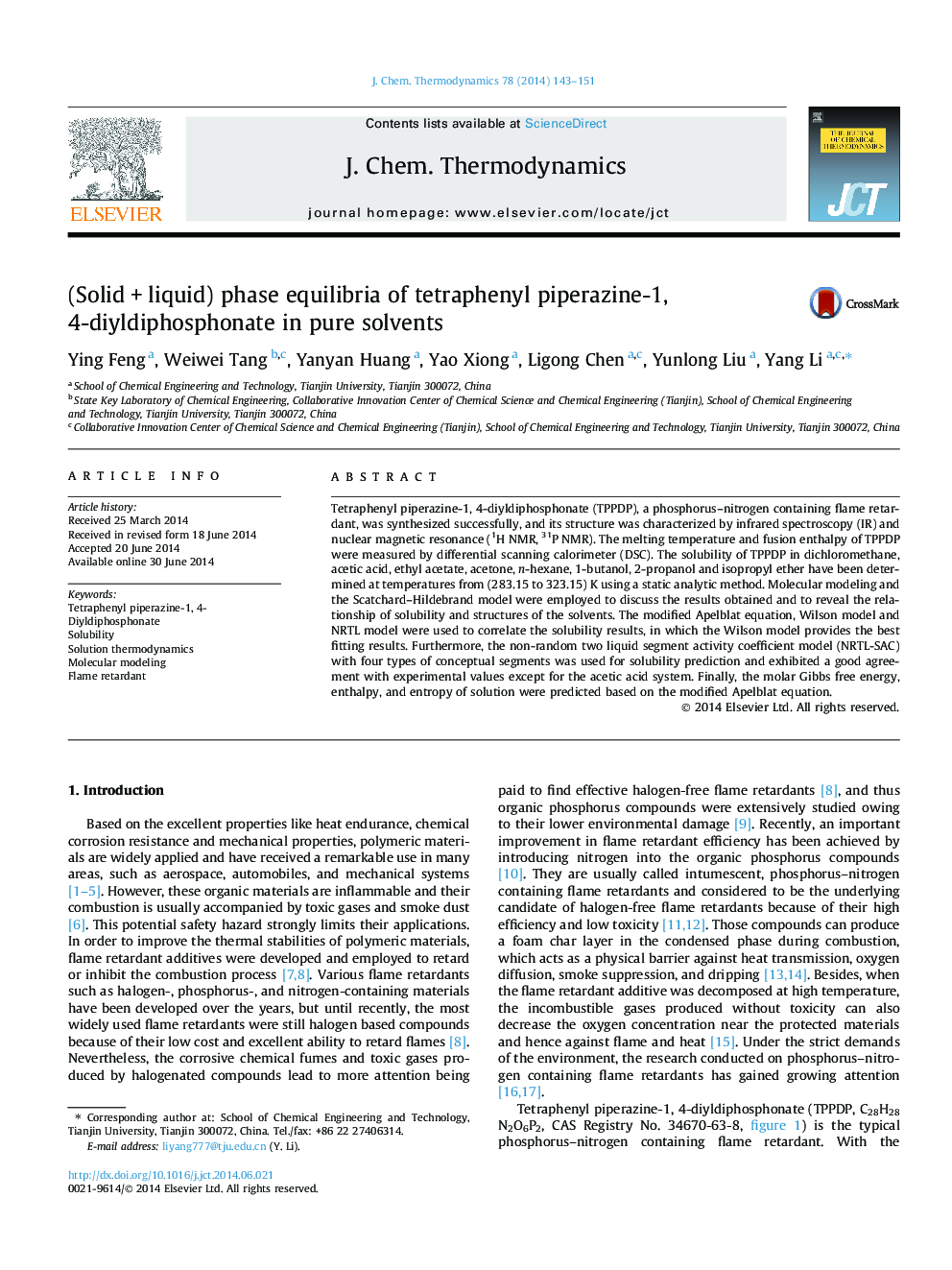| کد مقاله | کد نشریه | سال انتشار | مقاله انگلیسی | نسخه تمام متن |
|---|---|---|---|---|
| 215370 | 1426235 | 2014 | 9 صفحه PDF | دانلود رایگان |

• The solubilities of tetraphenyl piperazine-1, 4-diyldiphosphonate in eight organic solvents were studied.
• Molecular dynamic simulation was performed to understand solubility behavior.
• Solubility prediction using NRTL-SAC agreed well with experimental data.
• The thermodynamic functions relative to dissolution process were predicted.
Tetraphenyl piperazine-1, 4-diyldiphosphonate (TPPDP), a phosphorus–nitrogen containing flame retardant, was synthesized successfully, and its structure was characterized by infrared spectroscopy (IR) and nuclear magnetic resonance (1H NMR, 31P NMR). The melting temperature and fusion enthalpy of TPPDP were measured by differential scanning calorimeter (DSC). The solubility of TPPDP in dichloromethane, acetic acid, ethyl acetate, acetone, n-hexane, 1-butanol, 2-propanol and isopropyl ether have been determined at temperatures from (283.15 to 323.15) K using a static analytic method. Molecular modeling and the Scatchard–Hildebrand model were employed to discuss the results obtained and to reveal the relationship of solubility and structures of the solvents. The modified Apelblat equation, Wilson model and NRTL model were used to correlate the solubility results, in which the Wilson model provides the best fitting results. Furthermore, the non-random two liquid segment activity coefficient model (NRTL-SAC) with four types of conceptual segments was used for solubility prediction and exhibited a good agreement with experimental values except for the acetic acid system. Finally, the molar Gibbs free energy, enthalpy, and entropy of solution were predicted based on the modified Apelblat equation.
The simulated infinite dilute solutions of TPPDP in acetic acid (a), acetone (b), 1-butanol (c), and 2-propanol (d) and their interactions (H-bond).Figure optionsDownload as PowerPoint slide
Journal: The Journal of Chemical Thermodynamics - Volume 78, November 2014, Pages 143–151